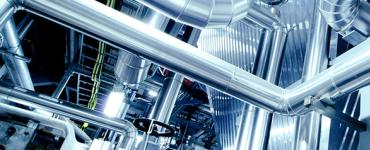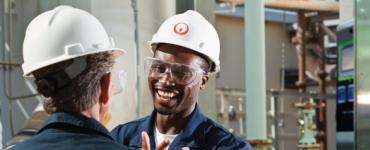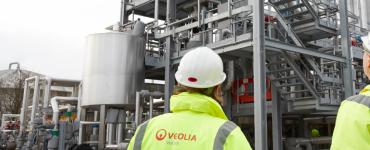- Home
- Latest News
- Optimising Boiler Water Treatment

Optimising Boiler Water Treatment
Efficient energy management in boilerhouses usually concentrates on fireside issues such as fuels and burners, but waterside conditions are every bit as important, as Veolia explains
Efficient energy management in boilerhouses usually concentrate on fireside issues such as fuels and burners, but waterside conditions are every bit as important. Any scale or corrosion deposition residues will reduce heat transfer, and a wide range of chemicals are added to the boiler feed water, such as; oxygen scavengers, scale preventatives, alkalis to increase pH and sludge conditioners - to ensure that these problems are minimised. Also, when water evaporates to produce steam, it leaves behind all the dissolved salts, which become concentrated in the boiler.
To prevent the boiler water becoming too concentrated the boiler has to be blown down. Although automatic blowdown control systems, based on monitoring the boiler water conductivity and operating an actuated blowdown valve, have been around for many years, many boiler systems still use timer controlled or manual blowdown. This typically means opening a valve automatically or manually for several seconds a number of times during each shift. The volume of blowdown water discharged each time the valve is opened is variable and the reduction in boiler water total dissolved solids (TDS) depends on the amount of steam produced in the period between blowdowns. The effect is quite considerable, the variability in boiler water TDS can be highly noticeable, and poorly controlled blowdown can lead to carryover of solids into the steam.
Further, the blowdown water is hot and contains the conditioning chemicals that have been added, so it represents a significant operating cost. Treating the make-up water to reduce its TDS concentration and maximising condensate return will minimise blowdown, but attention to the chemical dosing regime can also play a major role.
Borders General Hospital in Melrose, Roxburghshire, is the main hospital on the Scottish Borders and serves the counties of Selkirkshire, Roxburghshire, Peeblesshire and western Berwickshire. The hospital boiler system is standard, consisting of: three dual fuel (gas/oil) boilers and a waste heat boiler linked to the incinerator to provide steam for; space heating, sterile services, laundry and kitchens. Direct steam injection into autoclaves, laundry and steam ovens in the kitchen limits the condensate return but the hospital’s Estates Engineers have maximised recovery with a pumped system. Softened make-up water mixes with returned condensate in the hotwell where a blended alkaline tannin chemical was added to provide oxygen scavenging, corrosion inhibition and sludge conditioning. Whilst the boilers were well protected and in good condition, the chemical added high levels of alkalinity. This resulted in very high levels of blowdown, making it difficult to control the TDS and alkalinity in the boiler water. .
Following a review, Veolia changed the treatment regime to a neutralised sulphite programme that allowed the alkalinity levels to be reduced. The boilers already had individual feed lines but they had to be upgraded from copper to plastic so that chemical dosing for each boiler could be tailored to that boiler’s operating conditions. The new chemical regime has allowed the improvement of the existing automatic, conductivity controlled blowdown system for each boiler. This ensures consistent boiler water quality rather than the variability inherent with manual blowdown. The daily tests carried out by in-house staff are supported by regular visits from Veolia’s technician who carries out water analyses and checks dosing rates. Veolia also installed bulk chemical storage tanks to allow chemicals to be delivered to site by pumping over from a lorry mounted intermediate bulk container. This has improved Health & Safety by reducing the need for on-site storage and manual handling of both full and empty drums, decanting chemicals and empty drum waste.
Ian Gentleman, Estates Manager for Borders General Hospital, confirms the results: “Veolia’s revised chemical regime, together with their technical support and service visits, has given us a substantial saving in blowdown and is helping us to meet our sustainability targets. Our last boiler inspection showed a reduction in scale.”













